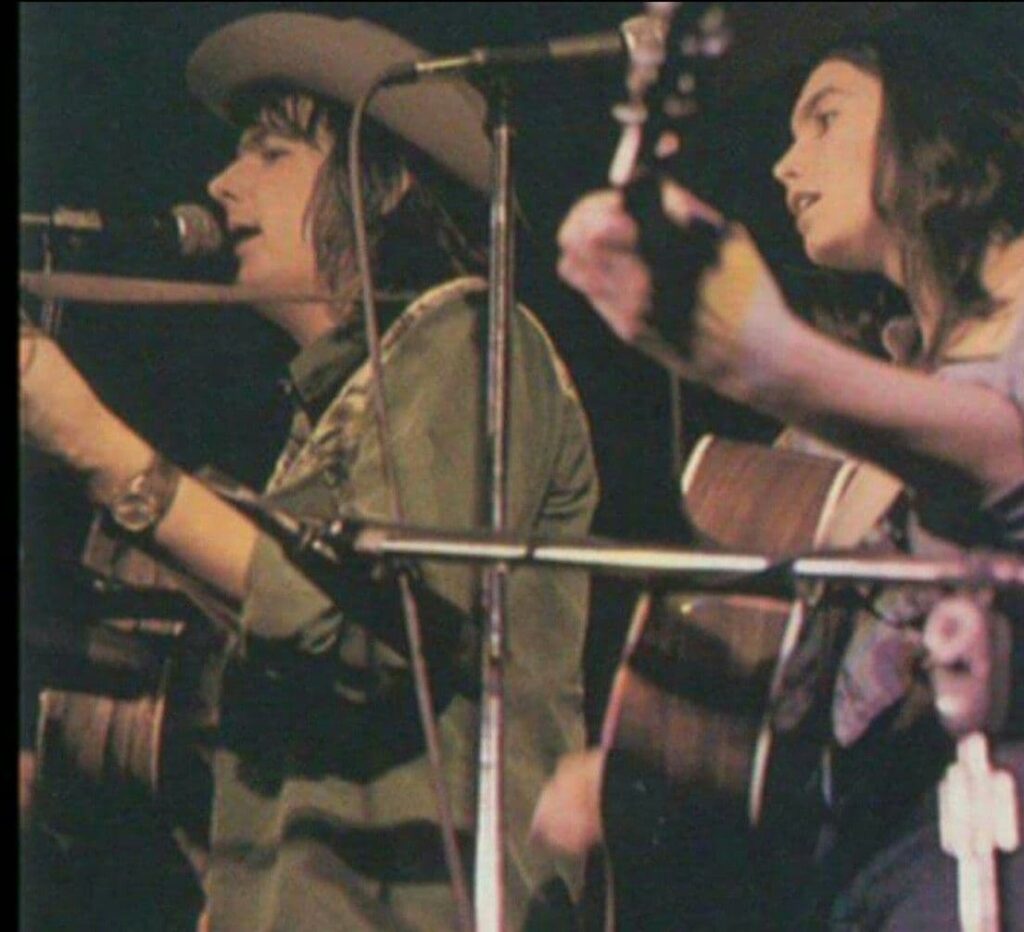
A timeless duet about finding solace and a sense of belonging on the road.
Gram Parsons’ and Emmylou Harris’ hauntingly beautiful duet, “Return of The Grievous Angel,” is more than just a song; it’s a poignant reflection on a life lived on the fringes, an ode to the restless spirit of the American wanderer. Released on Parsons’ posthumous album of the same name in 1974, this track serves as a fitting and somber epitaph for a man who seemed forever caught between two worlds—the cosmic country he pioneered and the demons that ultimately claimed him. While the album itself wasn’t a commercial smash upon its release, it has since become a cornerstone of the country-rock genre, and this particular song is often cited as a masterpiece. It never charted as a single, which is hardly surprising for such an introspective and stylistically unique piece of music, but its influence has resonated deeply through the decades, touching the hearts of those who appreciate authenticity over mass appeal.
The story behind this song is steeped in the tragic romance of Parsons’ short, brilliant career. The lyrics were penned by Tom Brown, a close friend of Parsons, who crafted them based on conversations he had with Gram about his life on the road. The “Grievous Angel” is Parsons himself, a figure of mythic proportions who, despite his flaws, was always seeking some form of grace. The song’s narrative is a mosaic of vivid, almost cinematic imagery—the endless stretches of highway, the flickering lights of roadside diners, the profound loneliness of being on the move. But there’s also a sense of hope, a yearning for connection that is personified in Emmylou’s ethereal harmonies. Her voice, a perfect complement to Parsons’ fragile, world-weary delivery, represents the “sweet love” and “sweet salvation” that he desperately sought.
For those of us who came of age with this music, “Return of The Grievous Angel” is a time capsule, a powerful reminder of a different era—a time when music was less about production gloss and more about raw, unvarnished emotion. It’s the sound of two souls finding each other in the vastness of the American landscape, their voices intertwining to create something truly transcendent. Listening to it now, you can almost feel the dust of the road, the hum of the engine, and the bittersweet ache of a life spent chasing a dream. It’s a song that speaks to anyone who has ever felt like an outsider, a wanderer searching for a place to call home. The way Parsons’ voice breaks on certain words, the vulnerability he exposes, is simply gut-wrenching. And then Harris’s voice swoops in, a beacon of light in the darkness, offering a moment of quiet solace. It’s a beautifully melancholic piece, a testament to the enduring power of music to capture the very essence of the human condition. It’s the sound of two kindred spirits, forever bound together by a shared love for a music that was, for them, a way of life.